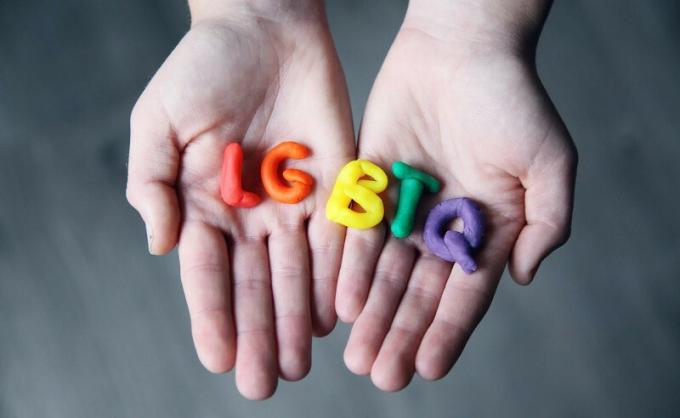Transphobia: its 7 personal and social consequences
In today's society, trans people increasingly see their rights and historical claims recognized; rights for which the LGTBI + movement has been fighting for decades.
Now, although Western societies are increasingly integrating trans people into each and every of the areas of daily life, there is still a lot of work to be done due to transphobia or discrimination towards the collective trans. In this sense, here we will a review of the main consequences that transphobia has on people and society in general.
- Related article: "What is social psychology?"
The main consequences of transphobia
Transphobia is the hatred that some people feel towards the trans collective, and this can manifest itself in multiple ways: either in the form of violence, discrimination, rejection, isolation, misunderstanding, insults, lack of acceptance and respect or conduct of all kinds openly contrary to the collective.
To learn more about what the phenomenon of transphobia consists of, in today's article we will briefly present the main personal and social consequences that transphobia can have on trans people, within societies Westerners.
1. Discrimination in the work area
The employment discrimination suffered by trans people is one of the most relevant aspects when it comes to explaining the vulnerable situation of this group; in Spain, it is estimated that approximately 80% of these people are unemployed, and who take an average of three years to find a job.
- You may be interested: "What are the psychological effects of unemployment?"
2. Discrimination in the health field
Discrimination in the health field occurs when health professionals do not properly attend to the health needs of trans people, either due to ignorance of their reality or due to explicit transphobia.
This means denying them a fundamental right that every human being deserves and generally, this discrimination is caused by a lack of interest in understand the type of problems that trans people typically experience, or by a denial of these as they are considered whims or inventions.

- Related article: "Health Psychology: history, definition and fields of application"
3. Difficulty finding housing
Discrimination when it comes to finding housing is also a classic in the lives of many trans people who see daily how due to their condition they are denied access to rent a place to live.
Today there are still many landlords who have great prejudices against trans people, and it is It is precisely this transphobia that prevents many trans people from freely renting a flat and living their lives with normal.
4. Bullying or bullying
Another of the social consequences to which trans people are doomed is an increased risk of being bullied or bullied during primary, secondary or high school studies.
Both the lack of acceptance and the discrimination on the part of classmates towards trans people who may having in the classroom ends up causing all kinds of violence, both physical and psychological, towards that or those people in particular.
- You may be interested: "The 6 strategies to combat bullying"
5. Social rejection, street harassment and direct violence
Social rejection is one of the constant experiences that trans people have experienced throughout their lives. the years and today this is also one of the most obvious consequences of societies transphobic
It often happens that trans people they do not have social support networks to turn to when they have a problem and that they do not find people or institutions that provide them with the support they so badly need in the face of gender-based discrimination.
In the countries around us it is very common for attacks or aggressions to occur from time to time trans people street for the mere fact of being, a hate crime motivated by the transphobia of some citizens.
According to statistics, in most countries, trans people are more likely to experience violence or street harassment at some point in their lives, as well as being murdered or commit suicide.
- Related article: "The 11 types of violence (and the different kinds of aggression)"
6. hypervigilance
Hypervigilance is the tendency that some trans people develop to be permanently vigilant towards negative reactions and discrimination from people around you.
This constant vigilance generates in people constant states of permanent stress and anxiety, which directly affects their emotional well-being and mental health.
7. internalized transphobia
Living in a society where transphobia prevails also means that on many occasions trans people internalize many of the shared transphobic ideas, values or behaviors socially.
This phenomenon is a social mechanism that is acquired unconsciously and that affects both trans people and cis people. In the case of trans people, the internalization of transphobia ends up having as a consequence that the person hates his body, hates herself and other trans people around her.
- You may be interested: "Homophobia, transphobia and biphobia: understanding these forms of discrimination"
The importance of taking care of mental health in the face of transphobia
Due to the complications derived from transphobia and discrimination, statistically, trans people are more exposed to the possibility of developing psychological disorders such as depression or anxiety.
And it is that the social transphobia that trans people face daily can cause the appearance of anxiety problems, depression, stress, eating disorders, increased likelihood of drug use and increased risk of suicide or presenting suicidal behaviors.
In this sense, it is important to seek psychotherapeutic help at the first signs that mental health is being left in a vulnerable situation. If you are looking for psychotherapy services, contact me.
